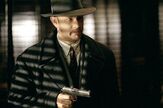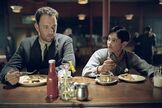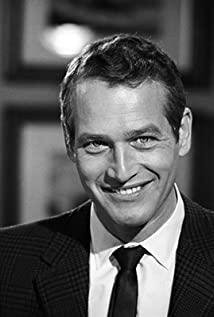Let's take a step-by-step analysis of the footage.
The atmosphere of the film is gray and dark, the shots are delicate and smooth, the rhythm is well-controlled, and the characters are clearly shaped, all of which reflect that the director and photographer have spent a lot of thought and energy to study. The language of these shots did not rely on superb stunts. Many of the shots have their own unique meanings, and there are bright spots everywhere. The director constantly uses shots to allude to the plot or the psychology of the characters, making the film intriguing. There is no doubt that this is a film with a strong sense of art. After watching it, many people feel that the plot of the film is bland and uninspired, but this can only mean that the audience did not have a good taste of the real connotation of the shots in the film.
Movies have always been like this. Once they are made too artistic, they will be difficult to understand, because watching this kind of film requires the brain. If the filming is too commercial, although the audience will applaud, but not many people can experience the art in it. As a result, art films are often not comparable to commercial films in the minds of the public.
Far too far~
Let's leave this aside, let's come back and continue to analyze the individual shots of this movie! ! !
The film's excellent camera sense is reflected: for
example, after the mob boss Old John criticized his son Connor in public, when Old John walked away with a microphone, the scene was very interesting, using the displacement of the camera to change the picture from reality to reality, and the director The scheduling skills are all so delicate and precise. There is also the plot where Mike finally kills Connor, enters the bathroom and shoots and leaves. The audience can only see Connie's death in the bathtub in the moving mirror of the bathroom door after Mike left.
However, the most in-depth footage of the film belongs to the plot of Mike's death:
When Mike stood in front of the window of the seaside hut and smiled and watched little Mike playing on the beach, the mirrored waves of the sea reflected on the window glass in front of Mike, so that the mirror images of Mike and the waves overlapped on the window. This shot seemed to express the blue sky. The sea is washing away the evil that Mike had done before. Suddenly, several gunshots rang out, and Mike was shot in the back and fell down. In addition to the mirror images of Mike and the waves on the glass of the window, there was an ambush killer in the corner (Jude Law). At this time, the mirror image on the window has another meaning. The rolling waves gradually drown the shot Mike.
The director deceived the audience once through such a connotative lens, and it turns out that this is the final end of Mike.
The surface plot of this film is too bland as the audience said, but it always runs through some extremely deep shots, and the meaning contained in it is what makes this film not bland!
We try not to pursue only superficial enjoyment, but try to explore every part of the film from a different viewing angle, to explore the hidden beauty in every minute and second, to re-understand and think about this film, you will be fascinated by her Fascinated by the unpleasant aura emanating from it.
View more about Road to Perdition reviews








